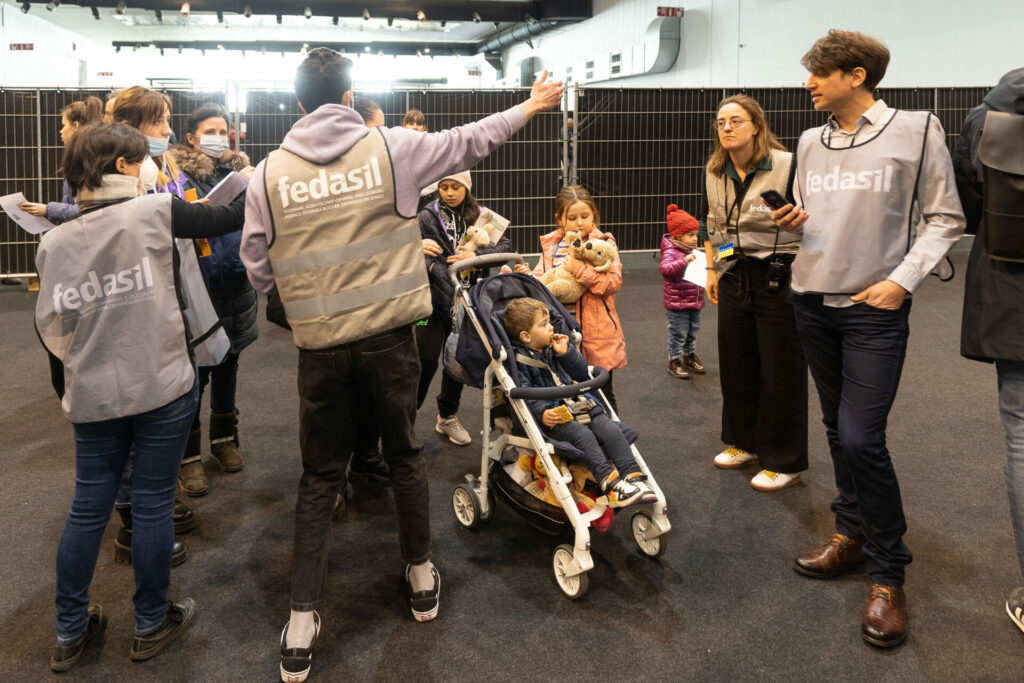A large majority of the host families who took in Ukrainian refugees in the past six months have said this has been a positive experience, according to a recent Belgian study.
Most of the people who took people in or are still doing so (83.5%) described their experience receiving Ukrainian refugees as "rather positive" to "very positive," according to the study by researchers of the Odisee University.
"We notice that the general feeling of the people who indicated that they had a spot free under the Flemish campaign is more positive than some negative reports would suggest," supervisor of the research Mieke Schrooten said.
For people who are still hosting Ukrainians, this figure is as high as 89%. Almost 90% organised the reception in their own homes (with or without separate rooms), while slightly more than 10% did so in a second residence or empty house.
Host families who indicated having more in common with the refugees they took in (when it comes to education, work situation, income, religion, ...) more often saw the experience as more positive. Cases where the refugees were taken in via a contact also tended to be more positive experiences.
Receiving support?
The study also highlighted the support given by local authorities and the municipality was especially important. Almost all families (94%) that received support from the municipality experienced the hosting experience as positive.
Around one in three people or families who took Ukrainians in said they would do the same this year if necessary; more than 60% are prepared – if necessary – to let the people they currently receive stay longer than initially agreed.
Related News
- Few Ukrainians find work in Belgium
- Two new reception centres for Ukrainian refugees to open in Brussels
The survey not only aimed to map the positive experiences but is also analysing the needs and expectations of host families.
"We have made the first analysis, but with over 700 respondents, we have a lot of data," Schrooten said.
"Now we are going to look at everything in more detail so that we can give local authorities and civil society organisations the right recommendations to ensure that as many host families as possible are satisfied with their engagement."

